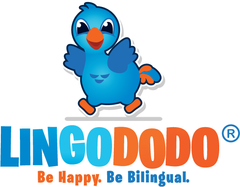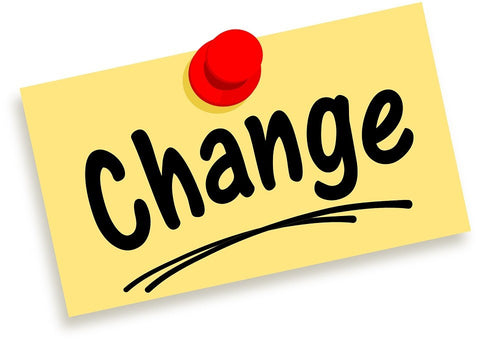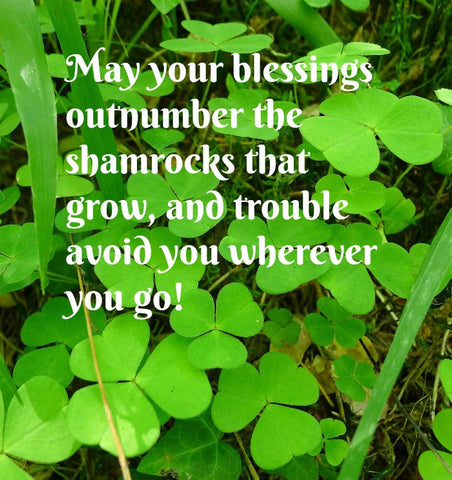
Why I Wish I Had Taught My Children Their Heritage Language
Why I Wish I Had Taught My Children Their Heritage Language
Below is a blog post from the website fluencyconnect that we believe, highlights an issue among Punjabi families raising children in western world, that is more common than we would like to admit as a community. We have taken the liberty of posting the entire blog post on this blog, with just a few illustrations added to the original post. Below is the link to the original blog post and the author is anonymous.
OCTOBER 17, 2015
Why I Wish I Had Taught My Children Their Heritage Language
LANGUAGE EXPERIENCES
“Language is so taken for granted...but when two people can't communicate with each other or understand each other, it can be a very frustrating experience. So much unsaid. So many words unspoken. So many ideas unexpressed. So many thoughts not shared, which is very unfortunate. I played a big part in my children not being able to communicate with their grandparents, and that is my fault, not my kids'. But at the same time, I also know that they each, without words, were able to feel the other's love. And I guess in the end, I have to be glad that at least that was there.”
Anonymous, Vancouver, BC
MY LANGUAGE HISTORY
I grew up speaking Punjabi and learned English from my dad. Lucky for me, my dad was educated and went to college in India, and spoke fluent English already when he immigrated to Canada with his young family (I was born in India in 1969 and grew up In Canada from the age of 2 years). We were the first East Indian (or South Asian) kids in our elementary school and I remember my teachers being so surprised that I spoke such good "perfect" English (I remember telling them proudly that my dad went to college in India and I learned from him :) As we grew older and with going to school and talking to my younger sisters, English became spoken more and more in our house (and Punjabi less and less), and my mom even learned to speak English over the years. She had broken English at first but then became very fluent....so that was a bonus. We found that English quickly became our first language, but we were still very fluent in Punjabi. Plus, we were very religious so all our religious prayers were in Punjabi and our culture and religion was extremely important in my family when I was a child, so that was still a very big part of my life growing up (not so much for my kids).
RAISING CHILDREN WITHOUT PUNJABI
Raising my child, we spoke English all the time in our house. The only time we spoke Punjabi was when I was talking to my in-laws on the phone or if the in-laws were visiting (and sometimes when my parents visited, but they also speak fluent English so it was mostly English and some Punjabi). At first, my kids were able to say a few very basic words in Punjabi when they were toddlers...I found that when they were babies, I tried to say some basic words in Punjabi (maybe 10 to 15 words total). And it was nice for them to say some words in Punjabi (like sit, eat, sleep, hungry, etc.), words that my in-laws could understand. Unfortunately, as they got older, those few Punjabi words got forgotten and I didn't make any attempt to teach my kids any new words in Punjabi. I also stopped using the few Punjabi words they had learned. We spoke strictly in English, except for when speaking to the in-laws. During the in-laws' visits, they were often dismayed and unhappy that they could not communicate with their grandchildren, as by the time they were 4 or 5 years old, they were speaking entirely in English and forgot their few Punjabi words.
CULTURE

We taught our kids a little bit about our culture, but not a whole lot. They knew the basics of what to do and how to sit and how to cover their heads when attending the temple for any family events, weddings, etc. My daughter had cute little Indian outfits to wear and she loved dressing up in them. They knew how to say the basic greeting of hello in Punjabi and they looked and dressed like Punjabi kids, but in fact they could not understand or speak it. Sadly, anything we explained to them about our culture was also in English, except for the very rare odd word used to describe something very Indian (i.e., my daughter would say something like "Mom, does this outfit look nice...can you help me fix my chooni" (chooni is the head covering women wear and while she knew that word, she did not know how to put a sentence together in Punjabi).
REFLECTIONS AND GUILT
I totally wish I had taught my children Punjabi. Reading and writing it would have been a bonus...but having them be able to just SPEAK it and understand it would have been amazing. I always felt guilty when my in-laws visited and tried to say something simple to them in Punjabi, and my kids looked at them with blank looks on their faces. I saw the frustration on the faces of both the grandparents and my children. They simply were not able to communicate. I would have to jump in and say grandma is asking this...and then tell her that my kids are saying this.... and often my in-laws chided me and my husband for not teaching our kids to speak their "mother tongue." We always had an excuse, we are too busy to slow down and use words in Punjabi, because they don't understand..... we are busy and it's just easier to communicate in English.... plus "it doesn't matter anyway, we live in Canada." But now, looking back, I realize just how much I hindered my kids from being able to communicate with their grandparents. My own parents spoke English so while my kids were able to communicate with one set of grandparents, they were not able to communicate at all with the other set of grandparents. This set of grandparents is very elderly and it's difficult for them to learn a new language at their age, but it would have been so easy for my kids to learn to speak fluent Punjabi while they were young. They would have picked it up so quickly. And even now I feel bad that there was such a barrier in communication between my kids and their grandparents. Even my own parents, who speak fluent English and were always able to communicate with my kids, would tell us we need to speak Punjabi at home and that our kids needed to learn it. They would try to speak some words in Punjabi with the kids, but my kids always spoke back in English when I explained what they were saying. Then of course, my parents went back to English to be able to communicate with them better. Ultimately, it was up to me and my husband to speak Punjabi in our home and teach this language to our kids, not up to the grandparents, who were only there for a short visit and then gone.
HOW MY KIDS WERE AFFECTED
Both my kids wish they could speak Punjabi fluently. My daughter is 16 now and my son is 19. My in-laws are very elderly now and I see the look of concern on my kids' faces when they see them now (they can no longer visit us as they are very frail now, but we go to visit them), and I know they want to be able to talk to them and reassure them, but instead they look at them with concern and hug them and kiss them, and nod their heads and try to say a few words like we are fine, how are you. And then they just stop talking. They just look at each other. My in-laws are just happy to see their faces. But I have to say, they do "speak" a language of love that involves hugging, kissing the hand, nodding, smiling, and reassuring with body language. That is a universal type of language that, thankfully, needs no words. You can see that the love is there. But I often wonder how much more they could actually talk about and express more deeply if they were able to communicate with the spoken word. My husband and I can have conversations with them, and talk about anything. I wish my kids could do that too. It makes me honestly sad that as a parent, I failed them in this regard.
Also, at her high school last year, my daughter decided on her own to take Punjabi class as a language instead of French. She said she would never speak French anywhere and she had more of a desire now to get in touch with her roots and her culture, and also, she wanted to be able to speak in a language that her parents were able to speak so freely when the need arose. I think she realized the importance of learning the language. Even though we live in Canada, there are so many people, family, friends, and even strangers around us that speak Punjabi. My daughter has been on the bus a few times where an elderly South Asian man or woman has asked her for directions in Punjabi, and she was not able to help them. They were not able to ask the other people around them, but on seeing a young girl of the same heritage sitting close to them, they assumed she would know how to speak the language and help them, but she was not able to. I have had her come home a few times saying mom, why didn't you guys teach me to speak Punjabi? Both kids have said this many time when not being able to communicate with their grandparents or with other people.
My daughter ran into a similar situation in school. All of the Punjabi class is South Asian (as is the teacher) and 99% of the kids speak Punjabi fluently, as most kids either live with grandparents in the home who speak only Punjabi, or their parents are new immigrants and speak mostly Punjabi at home. They are taking the class to learn how to read and write the language, and to learn more words that are maybe used less often in everyday speech. So, my daughter was dismayed to find that she was still an "outsider" in her Punjabi class. It was not a class full of students who, like her, needed to learn spoken Punjabi from the very first basic words. They could speak it, and speak it very well. So, when the teacher discussed assignments in Punjabi, all the kids understood except my daughter. When other kids spoke to each other in Punjabi, everyone understood except my daughter. This was very upsetting for her, and again she came home asking me "Mom, why didn't you teach me how to speak Punjabi when I was little like everyone else??" On the outside, she looks South Asian and people wrongly assume she then also speaks the language. But inside, her mind is not able to decipher the words or put a sentence together. So, I had to speak to her teacher and explain the situation, and she tried to adjust the assignments for my daughter, understanding that she was completely new to the language, almost like a non-South Asian person would be, and proceed accordingly. I am glad to say my daughter knows the Punjabi alphabet now and can read words and spell words, but is still struggling with how to put words together in a sentence. That is going to take time and patience and more determination yet. And most of all, more exposure to the spoken language.
My son is 19 now and he is starting to say a few words now in Punjabi to his grandparents. He is making a sincere effort because I think he is realizing how important it is to have that time with his grandparents, and I find him listening very intently when my husband and I speak Punjabi to them. He says a few words to them now and then and I'm surprised - and very pleased - that he was able to say a few words to them. He is also making effort - on his own - to go to the temple regularly and I think when he sees his friends speak Punjabi so fluently, he wants to fit in too.
WHAT I WOULD CHANGE
If I were to have more children or if I could go back in time, I would definitely speak Punjabi all the time in my house, and continue speaking it at home after school and on weekends. I would make sure that they were able to communicate freely and openly with all members of the family, specifically the grandparents who don't speak English. I would love to see my kids understand Punjabi and not have blank looks on their faces when they are spoken to in Punjabi. I would love to see them speak Punjabi as fluently and as well as they speak English.
Could Punjabi Pad have helped?
The above blog post by anonymous made me wonder if our invention could have helped. Obviously, it is naïve to think that a toy could have reversed the whole situation, but still it made me wonder if Punjabi Pad could have taken some of the burden off of her shoulders. Maybe it could have helped her a little bit, with her busy schedule and lack of time? The above blog post reflects the harsh reality of today’s Sikh families having to juggle between two languages, two cultures and two ways of living. Wonder if there could be a golden middle, where our children can enjoy the best of both worlds. A world where they can enjoy the luxury of great infrastructure, modern lifestyle, amazing vacations, healthy environment as well as keep the traditional values like respect for elders, culture and heritage, alive.
On a slightly different note. It has been little over a month that we have launched Punjabi Pad and the sheer number of blessings that we have received from all sorts of people is overwhelming. We are truly starting to believe that we have struck a chord here with this Punjabi toy. It is not just a product that we have created and now sell but it really is almost like an oasis in the desert of our hopes and wishes of ourselves being able to pass on our heritage.
We might be getting a little carried away here as Punjabi Pad teaches just basic Punjabi alphabets, words, numbers, colors, and a few greetings. But so many people have appreciated it so much, that we are starting to believe that we are making a difference, even if only just a little.



